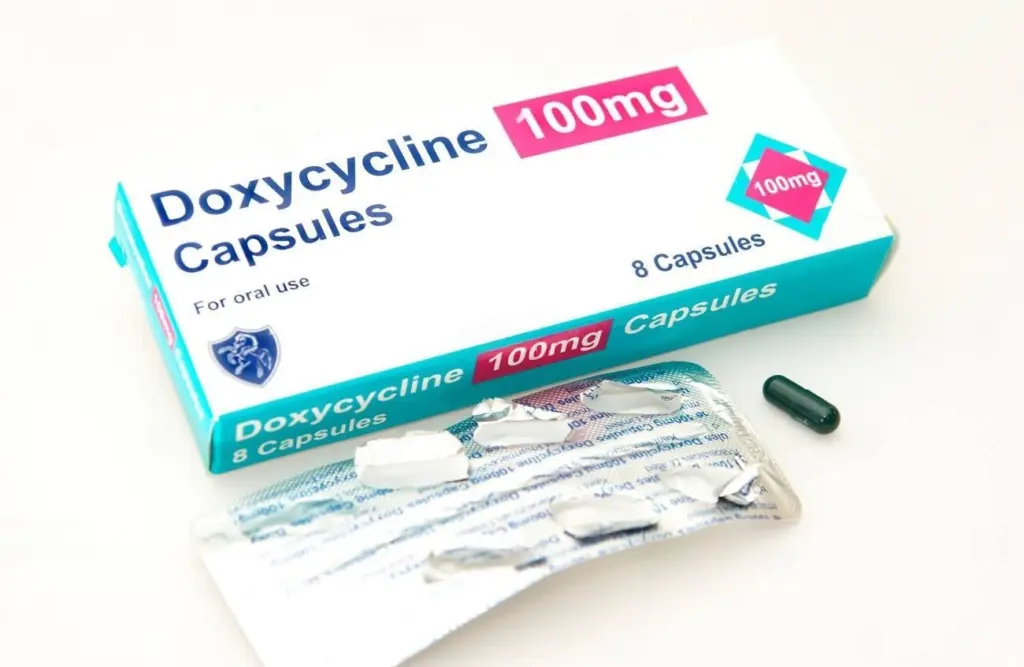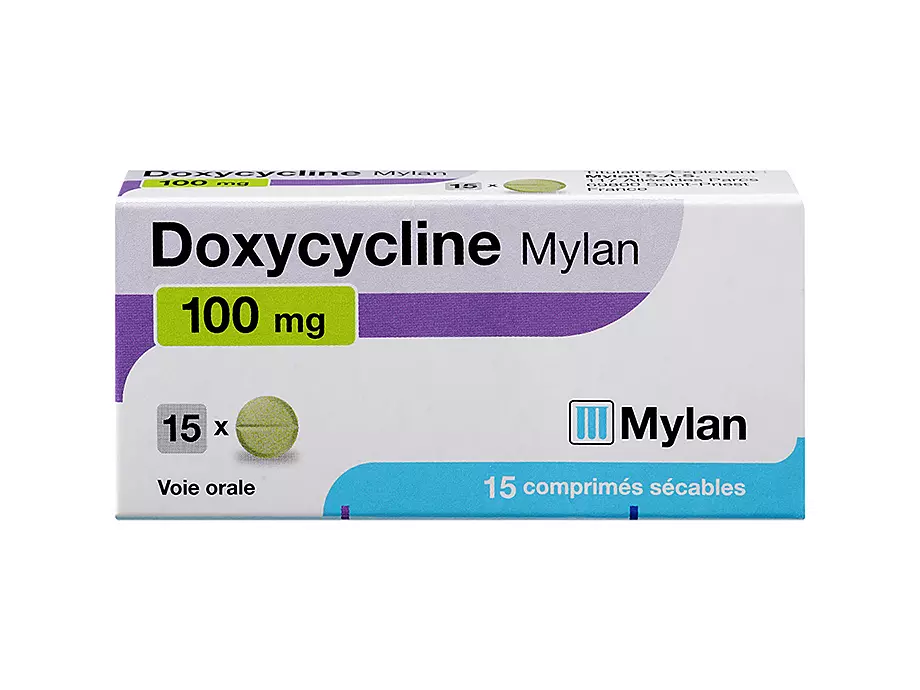Where Can I Get Doxycycline? In the realm of antibiotics, doxycycline emerges as a notable choice due to its adaptability and effectiveness in combating a wide array of infections. Whether you’re grappling with a bacterial infection or exploring treatment options for your pet, securing the right source for doxycycline is crucial. This guide will assist you in understanding where to obtain doxycycline, its varied uses, appropriate dosages, and potential side effects, along with insights into acquiring it for both human and veterinary needs.
Doxycycline is a renowned broad-spectrum antibiotic that belongs to the tetracycline class. Its wide-ranging applications make it a preferred choice among healthcare providers.
The tetracycline class of antibiotics, to which doxycycline belongs, is known for its broad-spectrum activity. These antibiotics are effective against a variety of gram-positive and gram-negative bacteria. They work by inhibiting protein synthesis, which is crucial for bacterial growth and replication. This mechanism makes them powerful allies in treating diverse infections.
Doxycycline is frequently prescribed for treating a variety of bacterial infections. These include respiratory tract infections, which are common in both children and adults, skin infections that may arise from minor cuts or acne, and sexually transmitted infections (STIs) like chlamydia. Its role in preventing malaria in travelers highlights its versatility and importance in tropical medicine.
In veterinary medicine, doxycycline is invaluable for treating infections in animals. It’s often used to manage bacterial infections in dogs and cats, such as those affecting the respiratory or urinary tracts. Its broad-spectrum nature ensures that it can target multiple pathogens, making it a reliable choice for veterinarians.
Where Can I Get Doxycycline?
Securing doxycycline requires understanding the avenues available for obtaining it, whether through prescriptions or online platforms.
Prescription and Over-the-Counter Options
To access doxycycline, a prescription from a healthcare provider is typically necessary. This ensures that the antibiotic is used appropriately and effectively.
Consulting Your Healthcare Provider
Visiting your doctor is the first step in obtaining doxycycline. During the consultation, you can discuss your symptoms and health history. If doxycycline is deemed suitable, your doctor will provide a prescription. This personalized approach ensures that the treatment aligns with your specific needs.
Exploring Telemedicine Services
Telemedicine has revolutionized healthcare accessibility. Through online consultations, you can speak with licensed professionals from the comfort of your home. These services often allow you to receive a prescription electronically, making it easier to access doxycycline without a physical visit.
Utilizing Pharmacies for Prescription Fulfillment
Once you have a prescription, local pharmacies are your go-to for filling it. Many pharmacies now offer online services for prescription refills, adding convenience to the process. It’s advisable to check with your pharmacy regarding stock availability to avoid delays.
Buying Doxycycline Online
Online pharmacies offer a convenient way to purchase doxycycline, but caution is key.
Identifying Reputable Online Pharmacies
When buying doxycycline online, ensure the pharmacy is reputable and requires a valid prescription. Look for pharmacies that are licensed and have positive customer reviews. A legitimate pharmacy will prioritize your safety and privacy.
The Risks of Non-Prescription Purchases
Be wary of websites offering doxycycline without a prescription. These sites might sell counterfeit or unsafe medications. Always verify the legitimacy of the pharmacy and avoid risks associated with unverified sources.
Convenience and Compliance
Online purchasing can be convenient, especially for those with limited mobility or busy schedules. However, compliance with prescription requirements is crucial to ensure the medication is safe and effective for your condition.
Doxycycline for Pets

Doxycycline is widely used in veterinary medicine, but securing it for pets requires a different approach.
Consulting a Veterinarian
If your pet requires doxycycline, consult a veterinarian. They can diagnose the condition and determine if doxycycline is appropriate. A veterinary prescription ensures that the dosage and treatment plan are tailored to your pet’s needs.
Filling Veterinary Prescriptions
Veterinary prescriptions for doxycycline can be filled at pet pharmacies or through your vet’s office. Some pharmacies specialize in veterinary medications, offering a range of options for your pet’s healthcare needs.
Ensuring Safe Administration
Administering doxycycline to pets requires careful adherence to the prescribed dosage. Follow your veterinarian’s instructions closely to ensure your pet receives effective and safe treatment.
Understanding Doxycycline Dosage and Uses
Doxycycline’s effectiveness is maximized when the dosage is tailored to the condition being treated.
Common Dosages
The appropriate dosage of doxycycline varies based on the infection and patient demographics.
Adult Dosages and Considerations
For adults, doxycycline is commonly prescribed at 100mg once or twice daily, depending on the infection’s severity and type. It’s essential to follow the healthcare provider’s instructions precisely to achieve the desired therapeutic effect.
Pediatric Dosage Guidelines
In children, doxycycline dosage is typically based on body weight and determined by a pediatrician. This careful calculation ensures that the treatment is both safe and effective for younger patients.
Adjustments for Special Populations
Certain populations, such as the elderly or those with kidney impairment, may require dosage adjustments. Healthcare providers will assess these factors to tailor the treatment plan accordingly.
Uses of Doxycycline
Doxycycline’s versatility extends across various medical applications.
Treating Bacterial Infections
Doxycycline is effective in treating a range of bacterial infections, including respiratory and urinary tract infections, as well as certain STIs. Its broad-spectrum nature allows it to target multiple pathogens simultaneously.
Acne Management
For individuals struggling with acne, doxycycline can be an effective treatment option. It works by reducing inflammation and bacterial presence on the skin, leading to clearer and healthier skin.
Malaria Prevention
Travelers to regions with a high risk of malaria can benefit from doxycycline as a prophylactic measure. By taking doxycycline before, during, and after travel, the risk of contracting malaria can be significantly reduced.
Veterinary Applications
In veterinary medicine, doxycycline is used to treat infections in animals. Its application ranges from respiratory infections to tick-borne diseases, showcasing its adaptability in animal healthcare.
Side Effects of Doxycycline
While doxycycline is effective, it’s important to be aware of potential side effects.
Common Side Effects
Doxycycline, like all medications, can cause side effects, though they are usually mild.
Gastrointestinal Disturbances
Common gastrointestinal side effects include nausea, vomiting, and diarrhea. These symptoms are usually transient and can be managed by taking the medication with food or water.
Photosensitivity and Skin Reactions
Doxycycline can increase sensitivity to sunlight, leading to a higher risk of sunburn. It’s advisable to wear sunscreen and protective clothing when outdoors to minimize this risk.
Managing Mild Side Effects
For most people, side effects are manageable and resolve once the body adjusts to the medication. Staying hydrated and taking the medication as directed can help mitigate discomfort.
Serious Side Effects and Precautions
While rare, serious side effects require immediate medical attention.
Recognizing Severe Allergic Reactions
Severe allergic reactions to doxycycline, such as difficulty breathing or swelling of the face and throat, require emergency medical attention. Such reactions are rare but can be life-threatening.
Monitoring for Liver Damage
Doxycycline can, in rare cases, affect liver function. Symptoms of liver damage include jaundice, dark urine, and severe fatigue. Regular monitoring by a healthcare provider can help detect and address these issues promptly.
When to Seek Medical Advice
If you experience significant side effects or symptoms of an allergic reaction, contact your healthcare provider immediately. Timely intervention can prevent complications and ensure your safety.
Cost and Availability of Doxycycline

Understanding the cost and availability of doxycycline can help in planning your treatment.
Cost Considerations
The cost of doxycycline can vary widely based on several factors.
Generic vs. Brand-Name Options
Generic versions of doxycycline are generally more affordable than brand-name counterparts. They offer the same efficacy and safety profile, making them a cost-effective choice for many patients.
Insurance Coverage and Out-of-Pocket Costs
Insurance coverage can significantly affect the out-of-pocket cost of doxycycline. It’s advisable to check with your insurance provider to understand your coverage and explore options for reducing expenses.
Exploring Assistance Programs
For those without insurance, assistance programs and discount cards may help reduce the cost of doxycycline. Pharmacies and healthcare providers can often provide information on available resources.
Availability
Doxycycline is widely available, but availability may vary by location.
Checking Pharmacy Stock
Most pharmacies stock doxycycline due to its widespread use. However, it’s a good idea to call ahead and confirm availability, especially if you have a pressing need for the medication.
Navigating Supply Chain Issues
Occasionally, supply chain issues can affect the availability of doxycycline. Staying informed and working with your healthcare provider can help you navigate these challenges effectively.
Alternatives in Case of Shortages
In the event of a shortage, your healthcare provider may recommend alternative antibiotics. These alternatives should be considered carefully to ensure they are suitable for your condition.
Alternatives to Doxycycline
If doxycycline is not suitable for you, alternatives are available.
Exploring Azithromycin
Azithromycin is an alternative antibiotic that can treat similar infections. It has a different mechanism of action and side effect profile, making it suitable for patients who cannot tolerate doxycycline.
Considering Ceftriaxone
Ceftriaxone is another alternative, often used for more severe infections. It is usually administered via injection and is known for its efficacy in treating a broad range of bacterial infections.
Consulting Your Healthcare Provider
When considering alternatives, it’s crucial to consult with your healthcare provider. They can assess your medical history and current condition to recommend the most appropriate treatment option.
Conclusion
Doxycycline is a versatile antibiotic used to treat various infections in both humans and animals. By understanding where and how to obtain it, as well as its uses and potential side effects, you can make informed decisions about your healthcare needs. Always consult with a healthcare provider to ensure doxycycline is appropriate for your condition and follow their guidance for safe use. Whether you’re purchasing doxycycline online or at a local pharmacy, prioritize safety and legitimacy to ensure effective treatment.


